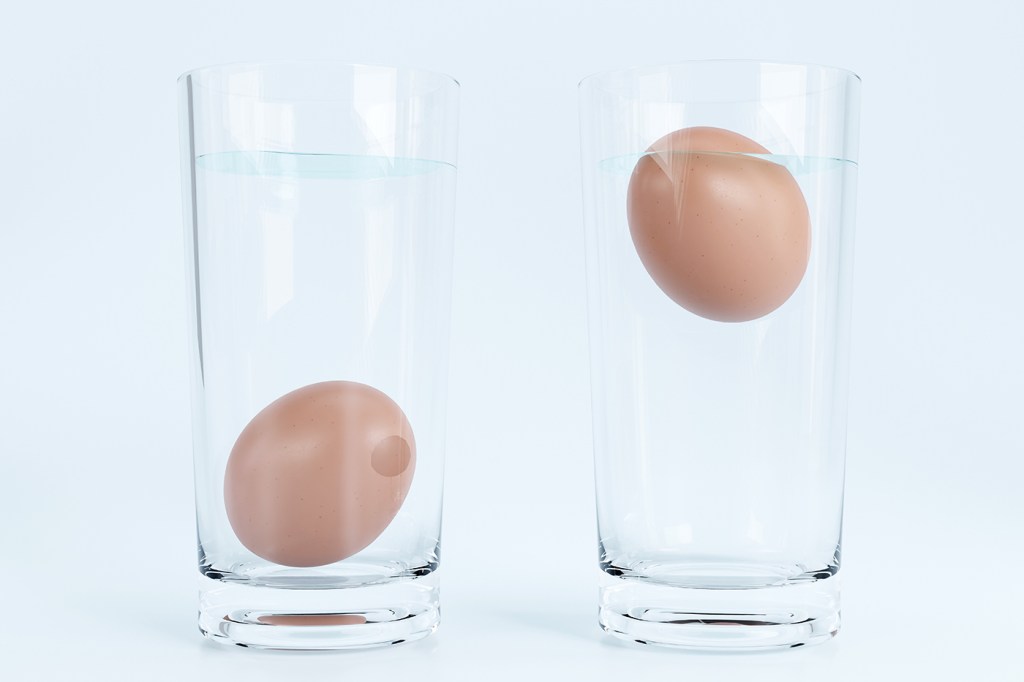When is it safe to buy Easter eggs? Everything you need to know about rising prices, storage and substitutes

The way egg prices have been soaring, this spring’s Easter egg hunts might seem worth their weight in gold.
The Bureau of Labor Statistics says a dozen large grade A eggs cost $4.15 in December, compared to $2.51 the same month in 2023, a price increase of more than 60%.
According to the U.S. Department of Agriculture, the average retail price for a dozen cage-free nonorganic eggs on Jan. 31 was $7.99. The USDA expects prices to continue to rise due to the spread of highly pathogenic avian influenza, or bird flu.
The uncertain future of egg availability and prices are leading some consumers to buy in bulk, “hoping to outlast the crisis by stockpiling eggs in their refrigerators,” says Northeastern University food safety policy expert Darin Detwiler.
“But improper storage and extended shelf life can lead to food safety risks,” he says.
Here’s what you need to know before you try to stretch the life of your eggs until Easter, which this year is April 20.
There are two types of eggs
“There are two types of eggs to consider,” Detwiler says.
“Store-bought eggs, which are washed and refrigerated, are safe for three to five weeks when kept at the proper temperature,” he says.
Unwashed farm-fresh eggs, the type from backyard coops, can last up to three months in the fridge, Detwiler says. Once washed, they should immediately be returned to the refrigerator.
How should they be stored?
“Either way, safe refrigeration is at or below 40 degrees Fahrenheit to slow bacteria growth,” Detwiler says.
It’s important to always store eggs in their original carton to prevent moisture loss and odor absorption from other foods, he says.

If you are intent on longer-term storage, consider freezing your eggs by cracking them into a container, whisking them and freezing for up to six months, Detwiler says.
Nobody will roll these shell-less eggs across a lawn, but their consistency can be maintained by adding a pinch of salt before freezing.
How to tell if an egg has gone bad
If you’re not sure whether the eggs in your fridge are still good, try the smell test, Detwiler says. “A rotten egg odor means it’s spoiled.”
If you are still unsure, try the float test, he says.
Place the egg in a glass of water. “If it sinks and lays flat, it’s fresh,” Detwiler says.
“If it sinks but stands upright, it’s older but safe,” he says. “If it floats, it’s likely spoiled. Discard it.”
People can also visually check their eggs for cracks, discoloration or unusual texture in the whites or yolks, Detwiler says.
Editor’s Picks
Egg substitutes are an option
There are several varieties of egg substitutes on the market, and each comes with pros and cons.
Egg whites are available in liquid or powdered form and are cholesterol-free, high in lean protein and low in calories, Detwiler says.
Excellent in baking and making “fluffy egg-based dishes,” they also lack nutrients and fatty acids from the yolks and can be watery and bland compared to whole eggs, he says.
Plant-based egg replacements made from mung beans, chickpeas or flaxseed are another option, Detwiler says.
They are rich in fiber and micronutrients, he says. “Mung bean-based options mimic scrambled eggs, while flaxseed works well in baked goods.”
On the downside, they are not as high in protein as egg whites, may not fully replicate the flavor and consistency of real eggs and often actually cost more than conventional eggs or egg whites, Detwiler says.
Cook your eggs thoroughly
Food safety experts say eggs are safe to eat as long as they are properly cooked to at least 160 degrees Fahrenheit, which kills the bird flu virus and other pathogens like salmonella, Detwiler says.
He says to avoid runny yolks, soft-boiled eggs and homemade mayonnaise if you are in a high-risk group for foodborne illness, a group that includes pregnant women, young children with developing immune systems and older adults with weakened immune systems.
Avoid buying in excess
Even if your local store does not limit the number of eggs you can buy at one time, as some grocery stores are doing, sticking to a reasonable amount of purchases can avoid waste and health risks, Detwiler says.
“Egg shortages may come and go, but foodborne illness is never worth the risk,” he says. “Consumers should focus on safe storage and smart usage instead of hoarding eggs beyond their safe shelf life.”











